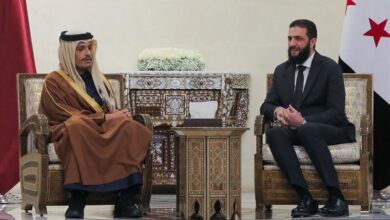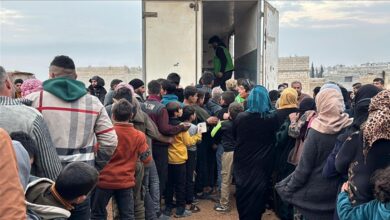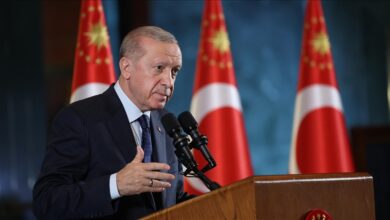
Arab refugees are at the forefront of those affected ..the largest donor to humanitarian institutions in the world decided to reduce the volume of aid
The British government surprised all humanitarian work and relief organizations with its decision to reduce the volume of humanitarian aid to many countries that are among the countries most in need of humanitarian support – especially Arab countries – such as Yemen, Syria, Libya and South Sudan.
Tens of thousands of Arab refugees in the camps will find themselves facing a frightening decline in the aid provided to them, given that the United Kingdom is one of the largest donors to humanitarian institutions in the world.
The British government justifies its decision with the consequences of the Corona pandemic on the British economy, while a number of humanitarian workers express their rejection of this justification, describing it as the denouncement on which the government attached this decision, which was prepared even before the emergence of the Corona epidemic.
The exclusive data – revealed by the “Open Democracy” Center, showed the extent of the reduction that will lengthen the humanitarian aid provided to countries in need. In Syria, two-thirds of the amount of aid provided will be cut, to decline from $ 145 million to $ 50 million, despite the promises of British Foreign Minister Dominic Raab to continue providing support to countries experiencing armed conflicts in the Middle East.
As for Libya, Britain plans to reduce the aid provided to it by 63%, which is almost the same for both Nigeria and Somalia, as well as in South Sudan, which includes Eritrean refugee camps, where tens of millions face the risk of starvation with the decline of British support from 125 million dollars to $ 50 million.
The West Bank will also be affected by this decision, with the aid provided to be reduced by 50%, and in Lebanon, where aid is directed largely to refugee camps, aid will be reduced by up to 88%.
This news for the needy comes after British Prime Minister Boris Johnson officially announced the reduction of aid to Yemen by about half, to move from $ 175 million to $ 95 million, a decision that sparked a lot of criticism considering that Yemen is the worst humanitarian disaster in the world, according to the United Nations.
Johnson justified the reduction of aid to Yemen with the losses incurred by the British economy due to Corona, which prompted the government to abandon a principle known as 0.7%, which means allocating this percentage to humanitarian aid, which is the highest in the world, and reducing it to 0.5%.
During the presentation of the budget for the fiscal year 2021-2022, the Treasury announced a reduction in the budget provided to the Foreign, Commonwealth and Development Office of Foreign Affairs, to drop from 14 billion dollars to 11 billion dollars.
With much regret, the CEO of the Syria Relief Foundation, Othman Moqbel, speaks about the decision to reduce the aid, stressing that it will lead to many problems for the Syrian refugees and exacerbate their suffering. Schools to function ”.
Moqbel asserts that Britain has reneged on many of the pledges it made to British humanitarian organizations, adding that “at the beginning they assured us that there will be no reduction in the budget of the International Development Office, and they retracted the promise, and then they promised us that the areas experiencing armed conflicts will not decrease the support provided to them. And they also backed away from this promise. ”
The expert in humanitarian work reveals that they have held lengthy meetings with the “Bond” Foundation, which is the largest gathering of heads of relief organizations in the world, and “everyone is angry and shocked by this decision, but the government provides the same justifications about the Corona crisis.”
Moqbel believes that the decision is not related to the epidemic, but rather it has been planned by Johnson for a long time, and he knows that he will not face any opposition because he has a comfortable majority and the opposition is very weak.
Source: Al Jazeera




